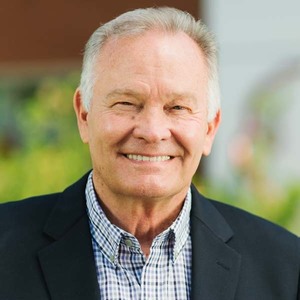Do you remember when you began your degree program for that exciting career? Whether studying theology, medicine, literature – it was an electric time filled with possibilities, dreams and the start of a new chapter in life. How do you feel today? Has the luster of your calling begun to fade a bit? If so, you’re quite normal. We love the beginning and ending of things. The start of a race, the finish line. Yet, most of life is lived in the middle, the starts and finishes representing but brief moments in our careers.
While getting off to a good start is important, the more important goal of hearing the Lord say “well done, good and faithful servant” depends on how we negotiate the middle of life and ministry. There is an account in the gospels, the only miracle included in all four, that has more to teach us than God’s ability to supply our needs. I speak of the feeding of the five thousand. The account I want to focus on is found in Mark 6:30-44. Grab your bible and read it now – then proceed.
Jesus was about a year from his crucifixion, ministering in Galilee with the disciples, and basically midway in his time of ministry with them. This account reveals the answer to two important questions: The first is:
What makes life in the middle so challenging?
Exhaustion
After months of teaching, healing the sick and traveling around the country, Jesus and the disciples are now bearing the grief of John’s beheading, not to mention the unrelenting press of the multitudes. They are so overcome that enjoying a quiet meal together is impossible (v. 31).
Interruption
The plan to get away to a secluded place fizzles when the crowds figure out where they are headed and rush to meet them (vv. 32, 33).
Temptation
Tired, hungry and ready for rest, this intrusion of needy people tests the hearts of the disciples. For his part, Jesus sees the multitude as sheep having no shepherd (v. 34). Their religious leaders are of no use, and he alone has the words of eternal life that will satisfy their real need. The disciples’ reaction is different. As the afternoon wanes past 3 p.m., they desire to send the hungry people away to get food for themselves (vv. 35, 36).
Does your life ever get hard because of such pressures? Personally, I have struggled with this my entire ministry life. When I’m rested and full of reserve strength, ministry is more rewarding than when the opposite is true. Yet, times of fatigue, interruption and the resultant temptation to be self centered come. In light of this, we continue by discovering the answer to our second question:
What does it take to effectively live life in the middle?
Decision
For his part, Jesus decides to teach and feed these people. That he sees the multitude as sheep needing a shepherd suggests that he views each person individually. They are no faceless crowd, but particular and precious people who need salvation for their souls. As the Master Discipler, he challenges his followers to make their own decision. “You give them something to eat” (v. 37), pressing them to step up to the plate and do the difficult thing, regardless of their fatigue or lack of funds.
Intervention
To help them along, Jesus asks them to find out how much food they do have (v. 38). Armed with five loaves and two fish, he then proceeds to feed the entire gathering until everyone is stuffed, with food left over (vv. 39-44). Had the God of all creation not intervened here, a lot of people would have gone hungry. The disciples learn to rely on God’s power and resources when faced with needs beyond their reserves.
The immediate result of this miracle, according to John’s account (6:14, 15) is the crowd’s recognition of Jesus’ status as a Prophet, a true messenger from God. The reaction is so powerful that the Lord perceives they will take him by force and make him king. Even though the sheep do not yet fully understand his true mission, they come away from the experience glorifying God.
I recall one night in Washington during the early years of our pastorate. It was Wednesday, I was in the middle of a home bible study, and it had been a long day. Sunday’s sermons were nowhere near finished (we had separate morning and evening services). The phone rang and my wife Rolane answered. It was the head surgical nurse at our local hospital, a member of our church. She needed me there ASAP. A young father of three had just died on the operating table of injuries suffered in a snowmobiling accident. There I stood by the phone; exhausted, interrupted and tempted to pass off the job to someone else.
As I drove the two miles to the hospital, God, in His wonderful grace and mercy, helped me overcome the temptation to think only of myself. He gave me the words to speak and the heart to hear the pain and anguish of these dear people who had lost their loved one. I still struggle with selfishness. And yet, through His powerful love, I am finding the strength to “make it in the middle.”
You are all in the middle of something as you read this; a dating relationship, marriage, parenthood, a ministry dilemma. And all of us presently are in the middle of this world-wide pandemic of 2020. Perhaps you are tired of the grind, irritated with interruptions and tempted to toss in the towel. Such are the challenges to faithfulness.
In my interaction with other seminary leaders, some report a large percentage of their graduates leaving ministry after only a few years of service. While God does direct ministers to other fields of endeavor, may it not be the case that we abandon our posts because we are unwilling to remain steadfast in the midst of the daily pressures of ministry.
May we emulate the character of our Thessalonian brethren who endured persecution of a kind we may never see, and of whom Paul could write, “We ourselves speak proudly of you among the churches of God for your perseverance and faith in the midst of all your persecutions and afflictions which endure.” (1 Thess. 1:4).
 Biola University
Biola University



